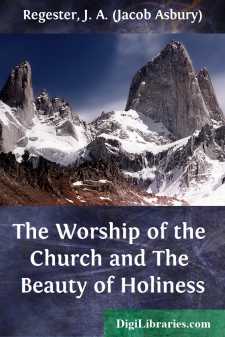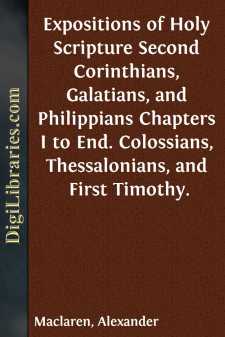Categories
- Antiques & Collectibles 13
- Architecture 36
- Art 48
- Bibles 22
- Biography & Autobiography 813
- Body, Mind & Spirit 142
- Business & Economics 28
- Children's Books 17
- Children's Fiction 14
- Computers 4
- Cooking 94
- Crafts & Hobbies 4
- Drama 346
- Education 46
- Family & Relationships 57
- Fiction 11829
- Games 19
- Gardening 17
- Health & Fitness 34
- History 1377
- House & Home 1
- Humor 147
- Juvenile Fiction 1873
- Juvenile Nonfiction 202
- Language Arts & Disciplines 88
- Law 16
- Literary Collections 686
- Literary Criticism 179
- Mathematics 13
- Medical 41
- Music 40
- Nature 179
- Non-Classifiable 1768
- Performing Arts 7
- Periodicals 1453
- Philosophy 64
- Photography 2
- Poetry 896
- Political Science 203
- Psychology 42
- Reference 154
- Religion 513
- Science 126
- Self-Help 84
- Social Science 81
- Sports & Recreation 34
- Study Aids 3
- Technology & Engineering 59
- Transportation 23
- Travel 463
- True Crime 29
The Worship of the Church and The Beauty of Holiness
Categories:
Description:
Excerpt
Worship
The worship of Almighty God is one of the characteristic acts of humanity. The brute looks up to heaven, but man alone looks up with thought of God and to adore. "The entire creation grew together to reflect and repeat the glory of God, and yet the echo of God slumbered in the hollow bowels of the dumb earth until there was one who could wake up the shout by a living voice. Man is the first among the creatures to deliver back from the rolling world this conscious and delicious response, the recognition of the Father who begat him. He, and he alone, is nature's priest, her spokesman, her mediator."
The idea of worship, in which the crown and glory of manhood thus has expression, "includes all those acts which make up the devotional duty of the soul to Almighty God." Our private and family devotions are acts of worship. They enter into its obligation, are comprehended by it, but do not fill it out. They are not sufficient alone. The due acknowledgment before others of our belief in and reverence for God, the blessings which attend only upon the use of united praise and prayer and of Sacraments, the honor of God, the rendering of "thanks for the great benefits that we have received at His hands," the setting forth of "His most worthy praise,"—all demand the public act of worship.
The obligation and privilege of such worship cannot be too greatly exalted. It is not a matter of inclination merely; it is an imperative duty, the discharge of which may not be regulated by considerations of convenience, or indolence, or pleasure. To neglect it, is to dishonor God, to withhold what is His due. It is also to dishonor ourselves, to violate our own noblest instincts. No other act of which we as men are capable is so dignified or so worthy of ourselves. Not to worship is to debase ourselves.
This duty and privilege of worship the church and the Prayer-Book help us to perform. Just as other buildings about us—homes, stores, factories, schools, libraries—stand for and represent certain interests and departments of our lives, so the church as a building makes its claim and reminds us that there must also be room—a large place and sacred—in our lives for worship, and supplies the hallowed means and helpful associations for its right discharge. And what the church supplies the means of doing fittingly, the Prayer-Book directs. It comes with the reminder that while Sunday brings the great opportunity of worship, the obligation is not a thing of one day only, but of every day, and that our public worship should be "daily," if possible. It enables every one who comes into the church to be a worshiper. It gives to each one his part. It makes no distinctions. High and low, rich and poor, have equal share in the service. It teaches to worship reverently, and in spirit and in truth. "Everything in the Prayer-Book is solemn, humble, reverential, as it respects man, and ennobling and glorifying as it respects God." And this is meet and right. For, as has been truly said, "Worship is the concentration and consecration of whatever is noble in the world....












